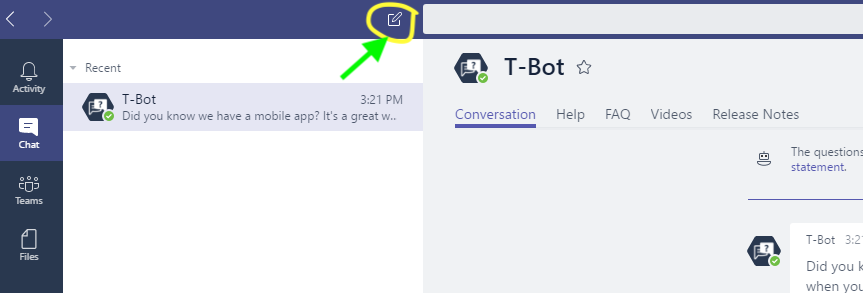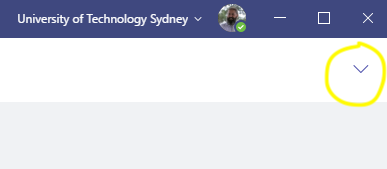Get the most up-to-date information on using Microsoft Teams as an online tool in our Resources section.
Microsoft Teams is a chat-based workspace in Office 365. It is an entirely new experience that brings together people, conversations and content—along with the tools that teams need—so they can easily collaborate to achieve more. There is much excitement happening in this space as Teams begins to be used through UTS for collaboration, teaching, general communications and more. Some teams within UTS have completely done away with emails and opted for Teams as the main communication tool. It provides an intuitive experience with limitless potential for setting up your digital collaborative environments.
https://www.youtube.com/watch?v=nKU-FMzZFF0
As Teams continues to roll out, it will replace Skype for Business and seamlessly integrate much of the Office365 software and applications. Functionality from instant messaging, document sharing, voice and video calls to whiteboarding and screen sharing will all be performed in the one place. There is also the potential to connect other services you may use to help streamline access to all your productivity tools and sources of information. The service is also platform agnostic and runs on Mac OS and Windows, many browsers (not Safari) and both iOS and Android. Visit your Office 365 Portal and click the Teams tile or directly at https://teams.microsoft.com. Mobile apps can be downloaded for Windows (32 bit and 64 bit) as well as Mac OS (10+).
How to chat
Chat is a basic function of Teams, and is inherently integrated throughout all aspects of the interface. However, to start a one to one chat, use the Chat tab. You can start a new chat which acts as an instant message to one or many people. The chat tab is in the left bar marked with a speech bubble. Type the name of the person you want to chat with and start messaging. For chats you will be on the Conversation tab in the right window.. When you first log in to Teams you are greeted by the Teams bot (T-bot). T-Bot is an artificial intelligence application that can answer questions about using Teams. Ask T-Bot ‘what can I say’ and it will get you started on using Teams. This might be a handy introduction for anyone who might be a little overwhelmed upon first use of the tool.
To start a new chat, click the new chat button at the top of the application to the left of the command box.

Want to add more people to the same conversation? Click the expand down button at the top right and add more users.

Editing your message
![]()
Format your text. The text window will expand and you can format text with bold, underline, highlighting, bullet points, paragraph styles and make message important.
![]()
Add an attachment from your computer or Onedrive.
![]()
Add emoji
![]()
Search for GIFs made by Giphy. Enter the mood you’re looking for in the search field to filter.
![]()
Add a sticker. Use the meme section to create your own meme from the image and add your own text.
![]()
Create a meeting request. This will be synchronised with your Outlook calendar.

Add a link to pre-defined sites/information or go to the store to add plugins to other apps.
Files tab (right window in the Chat section)

Files sent between you and others are stored in the files section for you to easily return to.
Organisation tab
![]()
On the Organisation tab you will see the organisation structure (up and down) for the person. On the persons contact card you will see information such as title, location and phone number. From the contact card you can start a chat, send an email and make an audio or video call (via app over the network).
Activity tab
![]()
On the Activity tab you can see activity for the chat user on Teams that you are both involved with.
+ (add a tab)
Add a tab to the menu so that you both have access to information like a PowerBI dashboard or a specific website
Whether you’re already on top of using Microsoft Teams or you’re undecided about switching over, you may be interested in the Microsoft Teams vs Slack debate happening soon at the LX.lab. Leave a message below if you’re using teams and want to share your experiences, or if you would like some training and support in using Teams for work.
